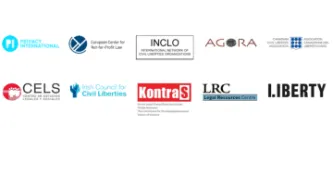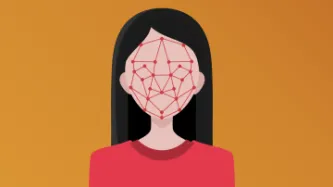Search
Content type: Advocacy
Generative AI models are based on indiscriminate and potentially harmful data scrapingExisting and emergent practices of web-scraping for AI is rife with problems. We are not convinced it stands up to the scrutiny and standards expected by existing law. If the balance is got wrong here, then people stand to have their right to privacy further violated by new technologies.The approach taken by the ICO towards web scraping for generative AI models may therefore have important downstream…
Content type: Advocacy
Privacy International (PI), the European Center for Not-for-Profit Law (ECNL), International Network of Civil Liberties Organizations (INCLO), Agora, the Canadian Civil Liberties Association, Centro de Estudios Legales y Sociales in Argentina, the Irish Council for Civil Liberties, KontraS in Indonesia, the Legal Resources Center in South Africa, and Liberty in the UK welcome the opportunity to provide input to the global study of the UN Special Rapporteur on the promotion and protection of…
Content type: Advocacy
We, the undersigned organisations, seek to draw your attention to aspects of the draft Corporate Sustainability Due Diligence Directive (the Directive), and its application to the use of technology and the technology sector, which require strengthening if the Directive is to realise its full potential in respect of this critical global sector that is today responsible for some of the most egregious human rights harms.
The technology and surveillance industries have ushered in an entirely new…
Content type: Video
<br />
Links
Read more about the ICO's provisional decision
Support our work
You can find out more about Clearview by listening to our podcast: The end of privacy? The spread of facial recognition
Content type: News & Analysis
As Amnesty International and Forbidden Stories continue to publish crucial information about the potential targets of NSO Group’s spyware, we know this much already: something needs to be done.
But what exactly needs to be done is less obvious. Even though this is not the first time that the world has learned about major abuses by the surveillance industry (indeed, it’s not even the first time this month), it’s difficult to know what needs to change.
So how can the proliferation and use of…
Content type: News & Analysis
A new report by the UN Working Group on mercenaries analyses the impact of the use of private military and security services in immigration and border management on the rights of migrants, and highlights the responsibilities of private actors in human rights abuses as well as lack of oversight and, ultimately, of accountability of the system.
Governments worldwide have prioritised an approach to immigration that criminalises the act of migration and focuses on security.
Today, borders are not…
Content type: Advocacy
Privacy International (PI), Fundaciòn Datos Protegidos, Red en Defensa de los Derechos Digitales (R3D) and Statewatch responded to the call for submission of the UN Special Rapporteur on contemporary forms of racism, xenophobia and related intolerance on how digital technologies deployed in the context of border enforcement and administration reproduce, reinforce, and compound racial discrimination.
This submission provides information on specific digital technologies in service of border…
Content type: Case Study
As working from home is becoming the new normal, employees’ monitoring becomes the new norm.
Companies around the globe are increasingly using software to monitor how long we spend in front of our computer, what websites we visit and what apps we use, when we type, for how long and how fast, how long our mouse stay inactive — any more than 15 seconds away can shift us from ‘active’ to ‘idle’ — and require us to keep our camera and microphone on at all times. These systems pit us against our…
Content type: News & Analysis
Amid calls from international organisations and civil society urging for measures to protect the migrant populations in Greece and elsewhere, last week, the European Commission submitted a draft proposal to amend the general budget 2020 in order to, among other measures, provide assistance to Greece in the context of the COVID-19 outbreak.
Both at the Turkish-Greek border and in the camps on the Greek islands, there are severe concerns not only about the dire situation in which these people…
Content type: Case Study
The increasing deployment of highly intrusive technologies in public and private spaces such as facial recognition technologies (FRT) threaten to impair our freedom of movement. These systems track and monitor millions of people without any regulation or oversight.
Tens of thousands of people pass through the Kings Cross Estate in London every day. Since 2015, Argent - the group that runs the Kings Cross Estate - were using FRT to track all of those people.
Police authorities rushed in secret…
Content type: News & Analysis
Palantir and the UN’s World Food Programme (WFP) are partnering for a reported $45 million. Palantir, a US-based company that sells data software and has been the centre of numerous scandals.
The World Food Programme provides assistance in food and nutrition to around 92 million people each year. Systems that are produced in agreements such as the one between WFP and Palantir increase risks to the people the they are attempting to help. There are risks to both individuals and whole populations…
Content type: Advocacy
Privacy International and the Italian Coalition for Civil Liberties' Joint Submission in Consideration of the Sixth Periodic Report of Italy Human Rights Committee 119th Session (6-29 March 2017).
The submission brings to the attention of the Committee the ongoing concern with Italian security agencies’ hacking capabilities and intelligence sharing arrangement, with Italian data retention procedures, and its export control regime as it relates to its robust…
Content type: Advocacy
Privacy International has today written to Danish ministers and authorities seeking urgent assurances following a report published two days ago in Information showing that the government has approved the export of an internet surveillance system to China.
The report, which relies in part on documents obtained from the Danish Business Authority – the department which oversees exports of surveillance technology – shows that the government has authorised a company based in…













